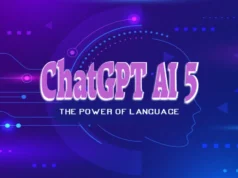How is conversational AI revolutionizing the development of AI-powered chatbots?
The Future of Conversational AI: Unleashing the Power of AI-Powered Chatbot Development

Conversational AI, powered by artificial intelligence (AI), is revolutionizing how businesses interact with their customers. From customer support to personalized shopping experiences, AI-powered chatbots are taking over various industries, enhancing user engagement, and simplifying complex tasks.
“Conversational AI is bridging the gap between humans and machines, providing seamless communication experiences that were once unimaginable.”
Gone are the days of traditional customer support methods, which often left customers frustrated due to long wait times and repetitive interactions. With AI-powered chatbots, businesses can deliver immediate and personalized assistance 24/7. These chatbots can understand and interpret user queries, provide accurate responses or solutions, and continuously learn from the data they receive.
One of the key elements that sets conversational AI apart is its ability to comprehend natural language, understanding the context and nuances in human conversations. This enables chatbots to engage in more human-like conversations, making interactions feel natural and effortless.
As technology advances, the future of conversational AI is expected to bring even more powerful capabilities. Developers are continuously enhancing the chatbot development process, incorporating machine learning algorithms and natural language processing models to further improve accuracy and user experience.
With the rapid growth of voice assistants like Siri, Google Assistant, and Amazon Alexa, voice-based conversations are becoming increasingly popular. The future of conversational AI will likely see a fusion of voice and text-based interactions, allowing users to seamlessly switch between communication modes based on their preferences or situational needs.

Businesses across industries are already leveraging the power of AI-powered chatbot development. E-commerce companies use chatbots to assist customers with product recommendations and personalization, driving sales and customer satisfaction. Healthcare providers rely on chatbots to offer triage services and provide medical advice, reducing the burden on healthcare professionals.
Conversational AI has also found its way into virtual assistants for smart homes, allowing users to control various devices and appliances using voice commands. The potential applications of conversational AI are vast and continue to expand as technology advances.
Note: While conversational AI has numerous benefits, it’s important to consider data privacy and security concerns. Protecting user data and ensuring compliance with privacy regulations must be a priority for businesses implementing AI-powered chatbots.
In conclusion, the future of conversational AI holds immense potential. As chatbot development progresses, businesses will be able to create more intuitive and intelligent AI-powered assistants. By tapping into the power of conversational AI, organizations can unlock enhanced customer experiences, streamline processes, and drive overall business growth. The era of truly seamless human-machine communication is just beginning.









